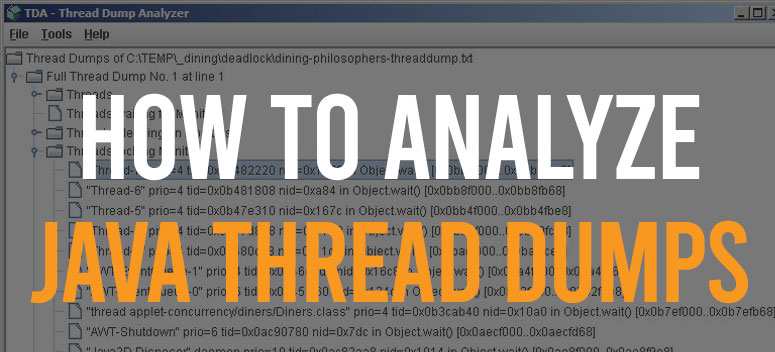
Java thread dumps form an important set of functional concepts when you’re working with Java. As many people do, due to the scope and popularity of this particular computer programming language.
Developers have used this for programming a lot of different useful systems. And over the years, we’ve seen more and more cool things from this.
That is because of all the features that you can get from Java, with all the different objects. The thread is one of them and is definitely one of the more useful ones.
In this article, I’m going to discuss something related to this particular topic of threads in Java. And as you might have guessed by the title, I’m going to so you the ways to do this.
With this, you’ll be able to fix up any issues with this Java thread that might be there.
So let’s look into it without further ado.
What is a Thread in Java?
First we need to have a clear understanding of what a thread is, before analyzing thread dumps. And that brings us to the concept of contention of threads.
There are 2 different types of threads, one is the daemon threads and the other is the non-daemon threads.
The daemon threads are those which are going to stop functioning if there are no threads of the other type. By the ‘other type’, I’m referring to the non-daemon threads. The thing is that, you wouldn’t have to create any threads by yourself, they’re going to come up by default.
Now, as far as the non-daemon threads go, these are the ones which run the static void main string arguments. If these fail to work, then that’s going to carry forward to the other threads not working.
In working programs, that are there performing some kind of function or the other. This is mainly a thing relating to the functional aspect of Java programming. But there can be other complications from there onwards.
That brings us to the idea of analyzing code in Java to identify thread dumps from the lot. That becomes important, as that can trigger issues in the matter of compiling.
There’s another thing that relates to this, and that’s what experts call as the Deadlock. Now this isn’t anything new by itself, and is a different version of thread contention. Here, there are 2, sometimes more than 2 threads which fall in a so-called Deadlock.
And because of that, these threads will be competing against each other, causing syntax errors.
That’s where analyzing the code for Java thread dumps is going to help so much. And with that, you’ll be able to resolve the syntax errors with compilation.
Analyzing the Java Thread Dumps
Here, we’re going to discuss all the things that is going to help you analyze the thread dumps in Java.
First things first, to the left-hand side of the main compilation screen, you’ll have to click on the particular process. That’s going to display for you all the information regarding this process.
Look for the Thread Dump button around that section of the screen, and click on it as you see it. For most of the compilers that you have for Java. That option is going to be on the top-right corner of the screen.
Now after you’ve gotten all this information, it’s time to extract the pid of the process using ps -ef command.
Again, you’ll have to apply the pid that you’ve extracted out with the kill – SIGQUIT(3) parameter. There, you’re going to see the Thread name, the Priority, status of the Thread and its ID.
You’ll also have to take into note, information regarding the Thread callstack which depicts the callstack information from the threads.
Identifying Thread Dumps by Analyzing Patterns
There are a few different things that can happen here, and for each, you’d need slightly different approaches.
So let’s look into all of that one by one.
-
- Unable to Obtain a Lock(BLOCKED): Here, the entire application is going to slow down quite a bit. As one of the threads occupies the lock and it keeps the other threads from getting it.
- Waiting for messages from Remote Servers for long: In this particular case, the thread we’re looking into seems to be all normal. But what ends up happening is the thread waits forever to read all the sockets.
- When in Deadlock: This is one of the more common scenarios and here, one thread needs the lock of another thread. And if that doesn’t happen, then whatever task there is, fails to finish.
Thus you can see that you’ll be able to check for any kind of Java thread dumps by identifying patterns. There can be a lot of other patterns and you’ll need to worry about that later on.
That is when you’ll have to deal with those as you scale up the scope of operations.
